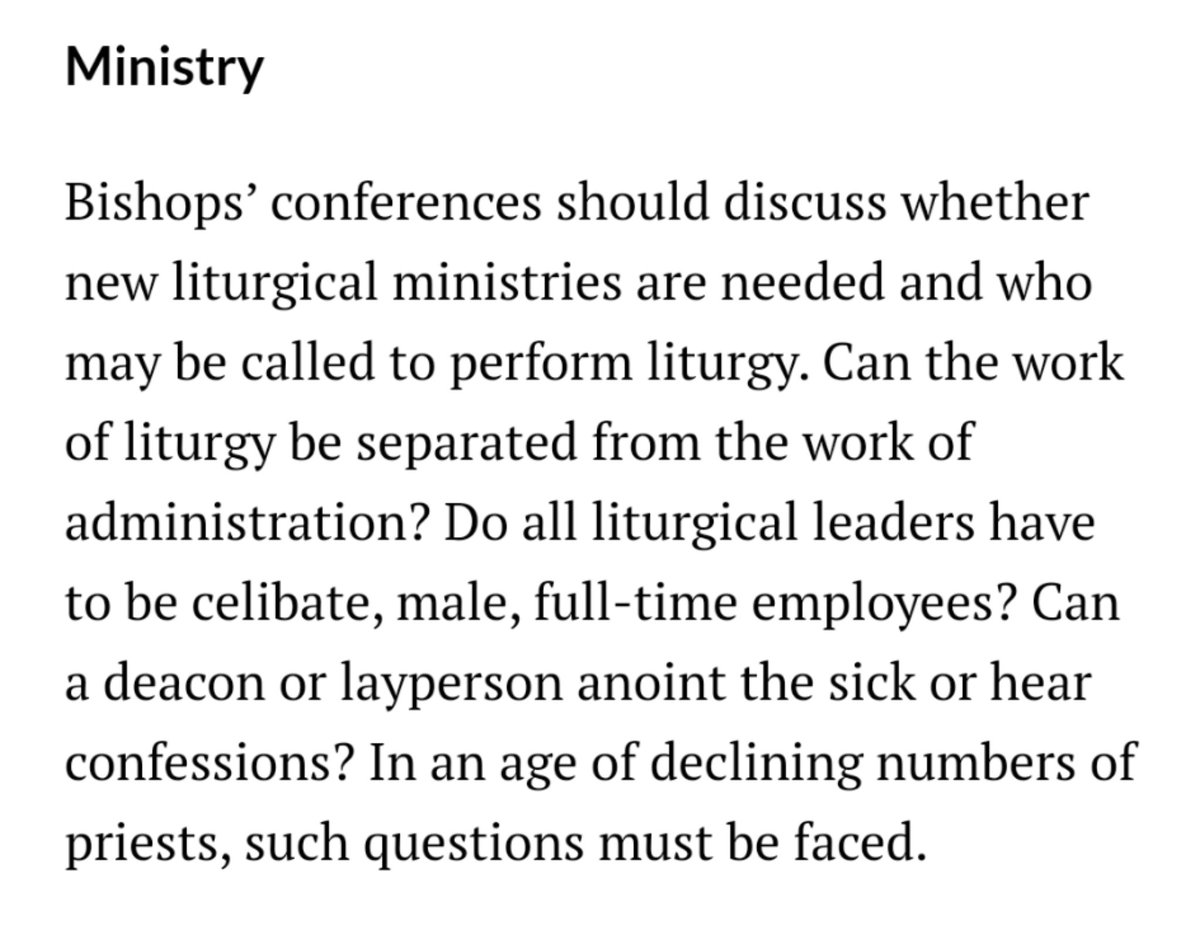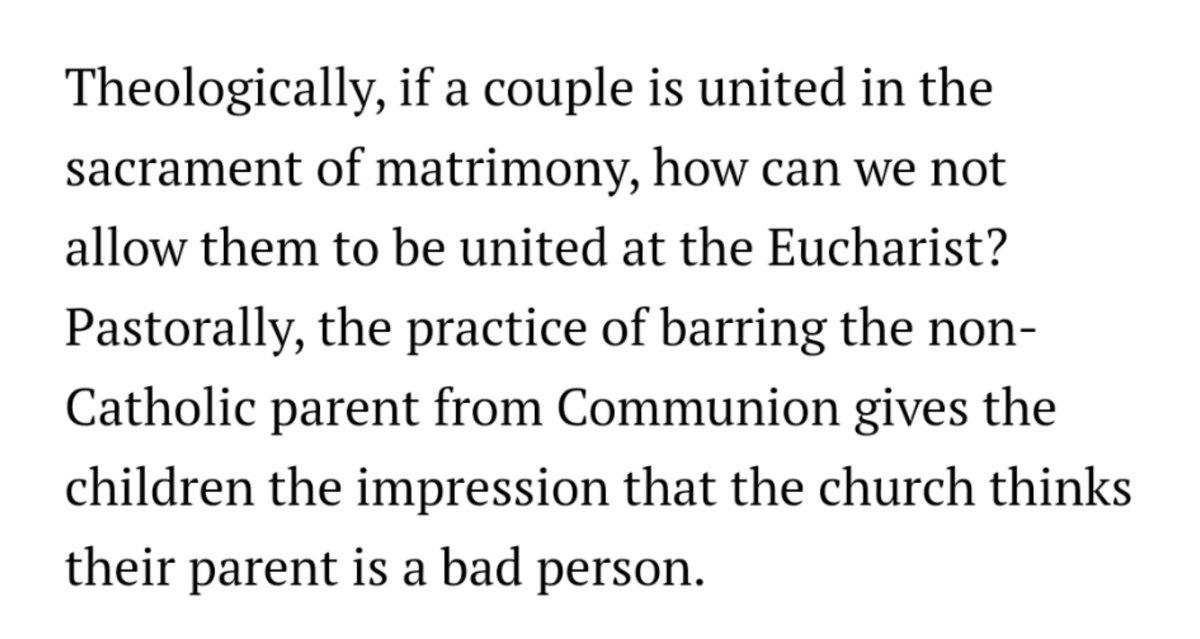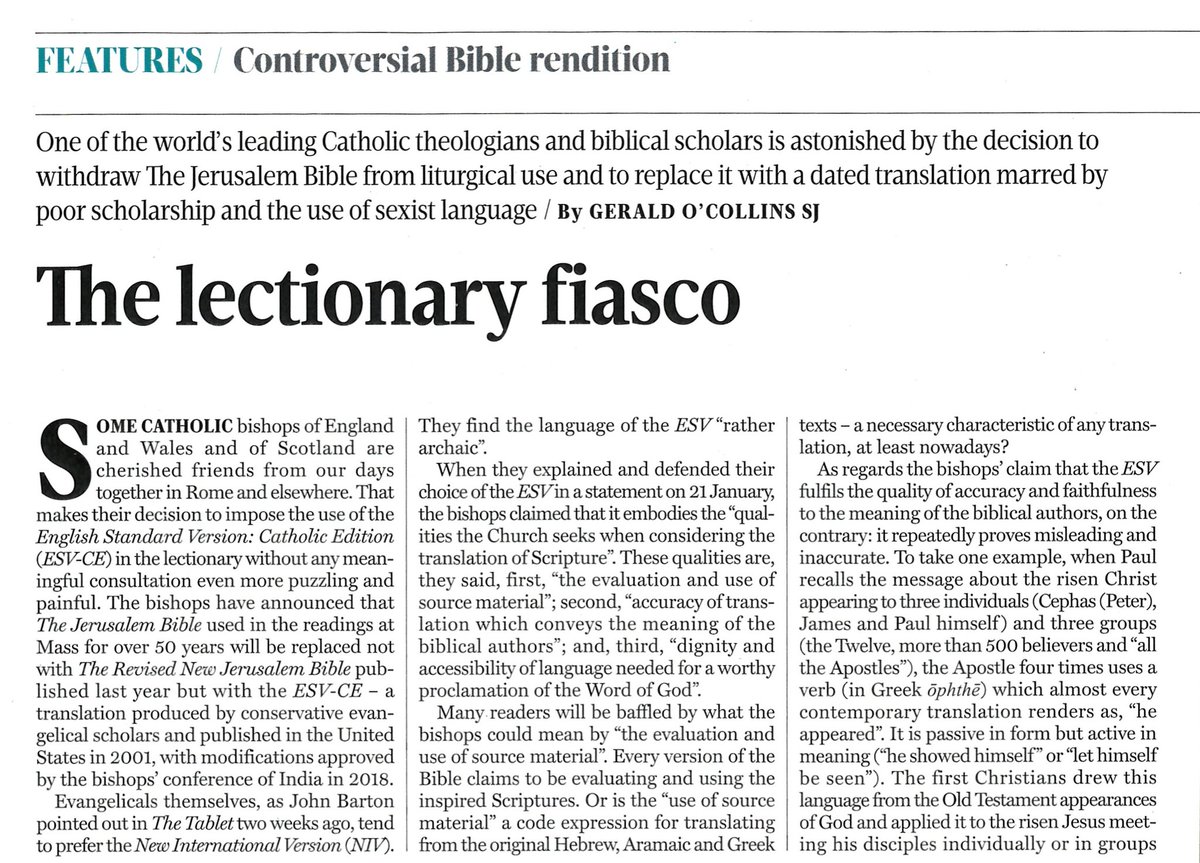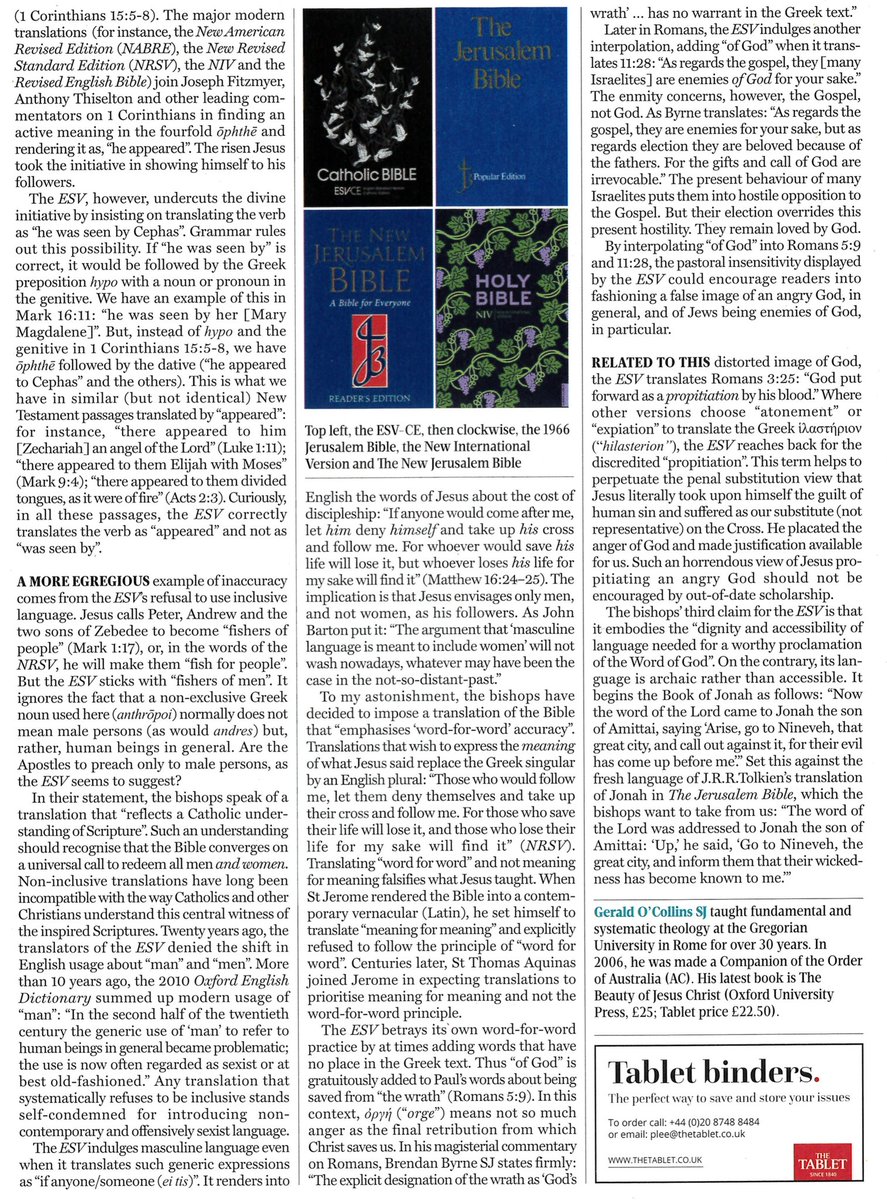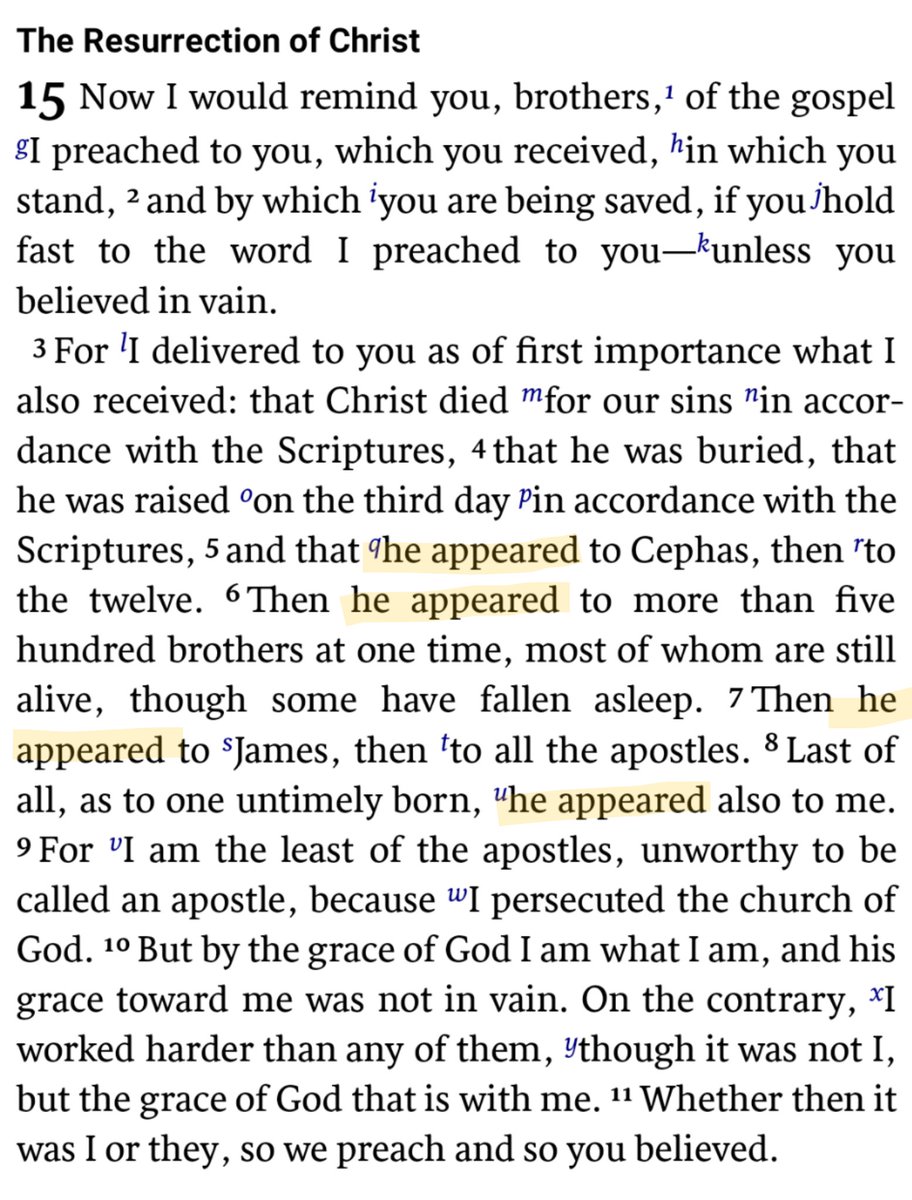
(1/8) There seems to be this odd notion floating around among some that the term "novus ordo" is somehow automatically derogatory, or not a proper term, or that Paul VI only used it once, etc.
So, a short thread with where the Church has used "new order of Mass" or similar.
So, a short thread with where the Church has used "new order of Mass" or similar.
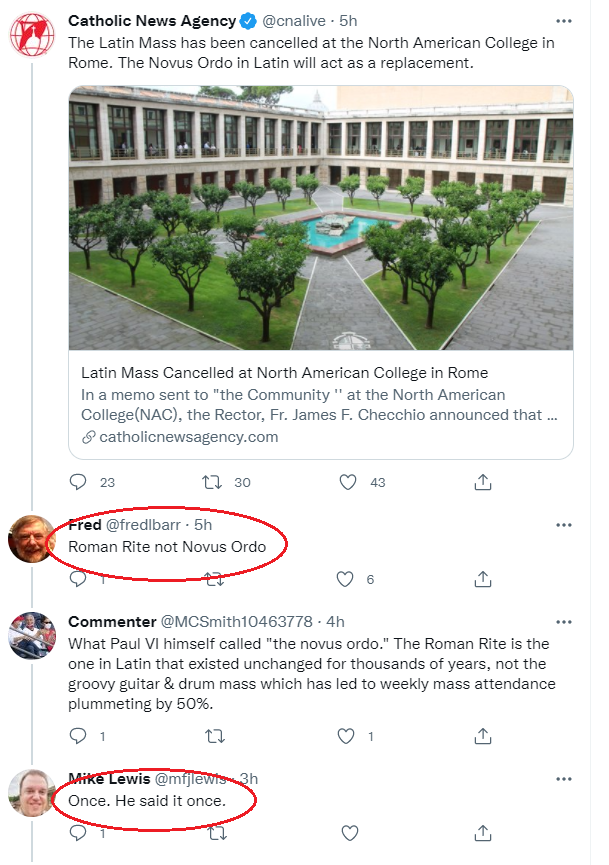
(2/8) Paul VI:
* address at consistory, 24 Mar 1976: vatican.va/content/paul-v… (pic 1 - the one generally cited)
* address at consistory, 28 Apr 1969: vatican.va/content/paul-v… (pic 2)
* address to the Consilium, 10 Apr 1970: vatican.va/content/paul-v… (pic 3)


* address at consistory, 24 Mar 1976: vatican.va/content/paul-v… (pic 1 - the one generally cited)
* address at consistory, 28 Apr 1969: vatican.va/content/paul-v… (pic 2)
* address to the Consilium, 10 Apr 1970: vatican.va/content/paul-v… (pic 3)



(3/8)
* handwritten note of Nov 6, 1968, cited in Bugnini, Reform of the Liturgy (Liturgical Press, 1990), p. 383 (pic 1)
* General Audience, 19 Nov 1969: vatican.va/content/paul-v… (pic 2)
* General Audience, 26 Nov 1969: vatican.va/content/paul-v… (pic 3)


* handwritten note of Nov 6, 1968, cited in Bugnini, Reform of the Liturgy (Liturgical Press, 1990), p. 383 (pic 1)
* General Audience, 19 Nov 1969: vatican.va/content/paul-v… (pic 2)
* General Audience, 26 Nov 1969: vatican.va/content/paul-v… (pic 3)
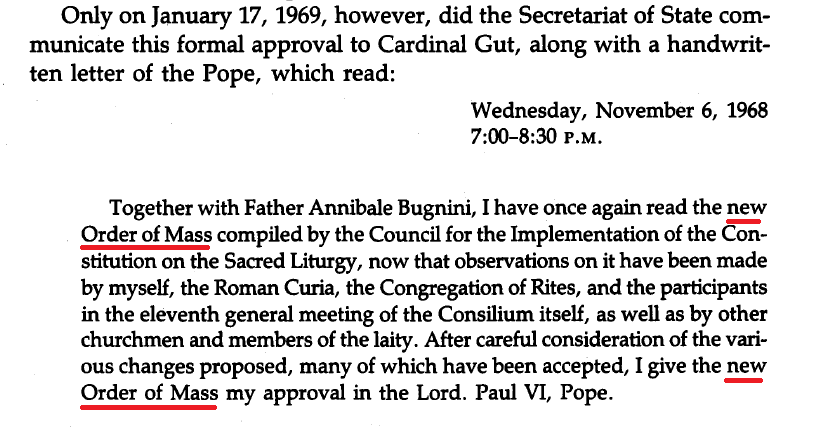


(4/8) Consilium ad exsequendam, Coetus X:
* Schema 90 (De Missali, 11), 26 Apr 1965, p. 3 (pic 1)
* Schema 113 (De Missali, 14), 9 Oct 1965, p. 4 (pic 2)
* Schema 170 (De Missali, 23), 24 May 1966, p. 7 (pic 3)
* Schema 258 (De Missali, 42), 21 Nov 1967, p. 6 (pic 4)



* Schema 90 (De Missali, 11), 26 Apr 1965, p. 3 (pic 1)
* Schema 113 (De Missali, 14), 9 Oct 1965, p. 4 (pic 2)
* Schema 170 (De Missali, 23), 24 May 1966, p. 7 (pic 3)
* Schema 258 (De Missali, 42), 21 Nov 1967, p. 6 (pic 4)
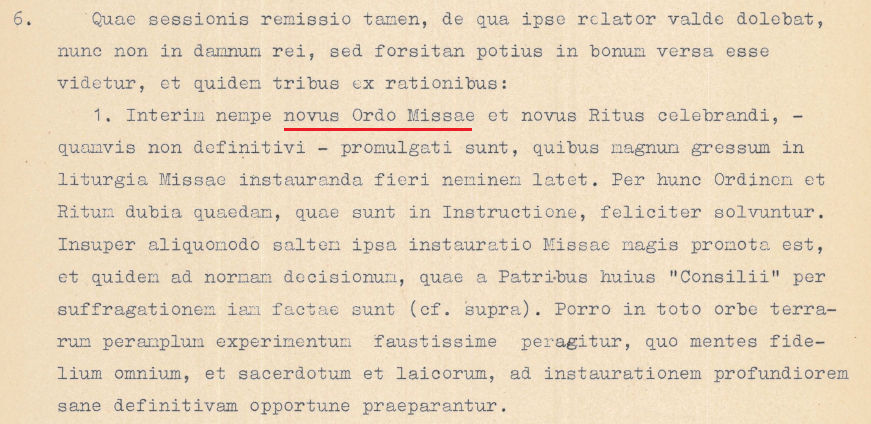

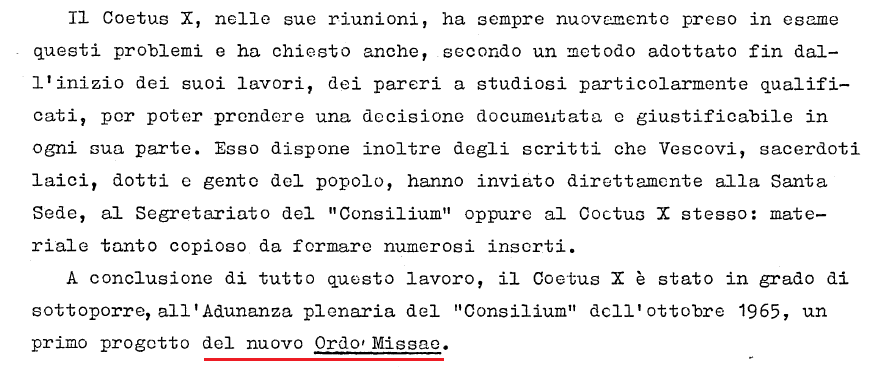
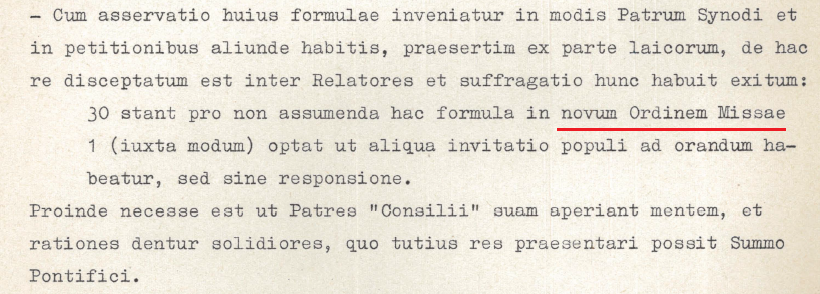
(5/8) Cong. for Divine Worship:
* Instr. "De Constitutione Apostolica", 20 Oct 1969, nn. 3, 6, 13, 19: Notitiae 49 (1969), pp. 418-423: cultodivino.va/content/cultod… (pic 1)
* Instr. "Decreto quo", 25 Jul 1969, n. 1: Notitiae 47 (1969), pp. 238-239: cultodivino.va/content/cultod… (pic 2)

* Instr. "De Constitutione Apostolica", 20 Oct 1969, nn. 3, 6, 13, 19: Notitiae 49 (1969), pp. 418-423: cultodivino.va/content/cultod… (pic 1)
* Instr. "Decreto quo", 25 Jul 1969, n. 1: Notitiae 47 (1969), pp. 238-239: cultodivino.va/content/cultod… (pic 2)
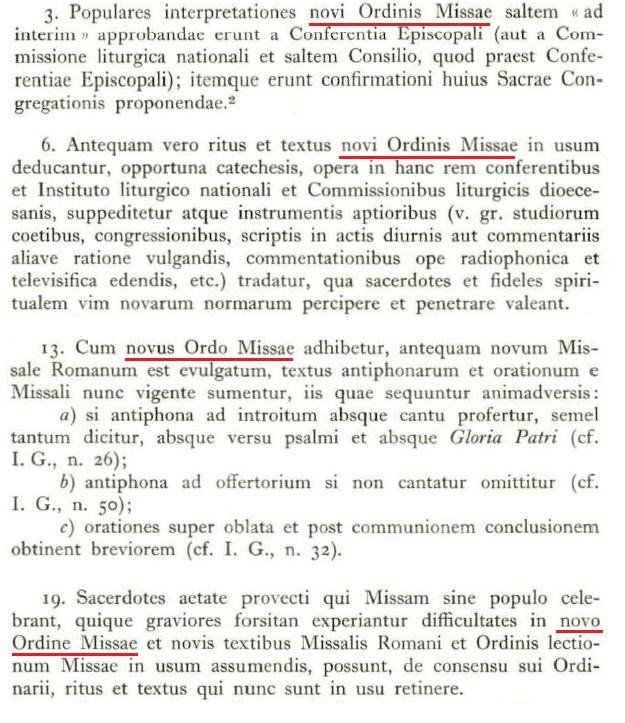

(6/8)
* Documentorum explanatio, responses 14 & 15: Notitiae 48 (1969), pp. 403-404: cultodivino.va/content/cultod… (pic 1)
* and, for good measure, a "novus ordo" of readings at Mass: Ordo lectionum Missae, Praenotanda: n. 10 (ed. typ. 1969: pic 2), n. 58 (ed. typ. altera 1981: pic 3)


* Documentorum explanatio, responses 14 & 15: Notitiae 48 (1969), pp. 403-404: cultodivino.va/content/cultod… (pic 1)
* and, for good measure, a "novus ordo" of readings at Mass: Ordo lectionum Missae, Praenotanda: n. 10 (ed. typ. 1969: pic 2), n. 58 (ed. typ. altera 1981: pic 3)
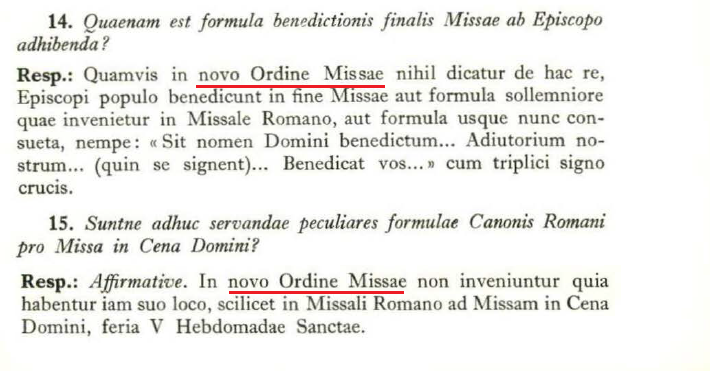
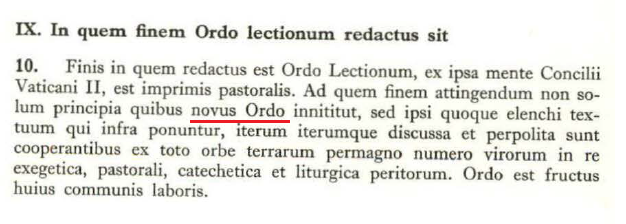
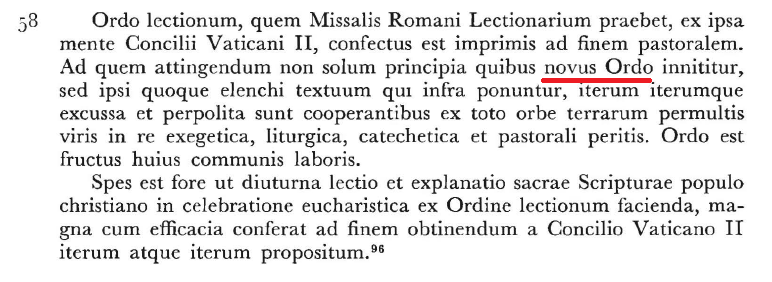
(7/8) This is all quite aside from the uses of "new order" with regard to all the other liturgical books (Confirmation, Penance, Christian Initiation, etc.)! 


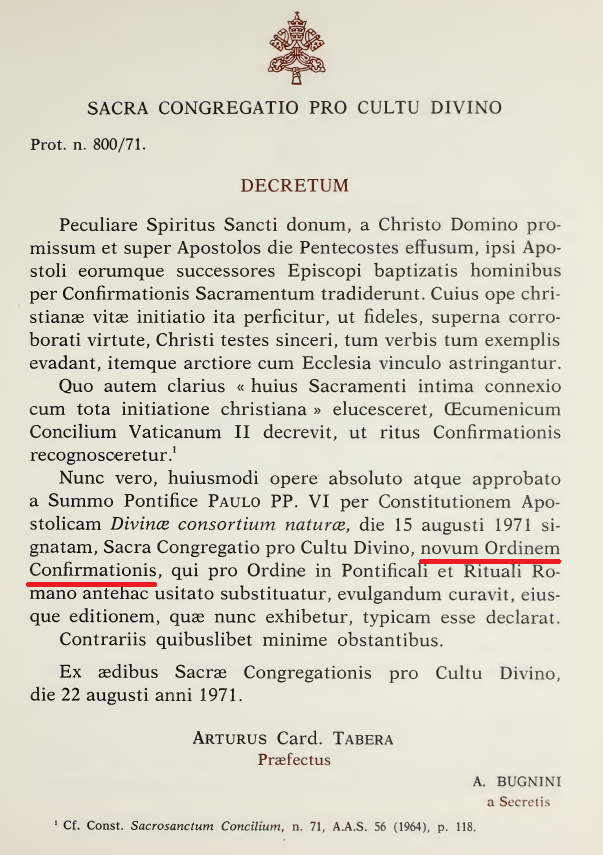
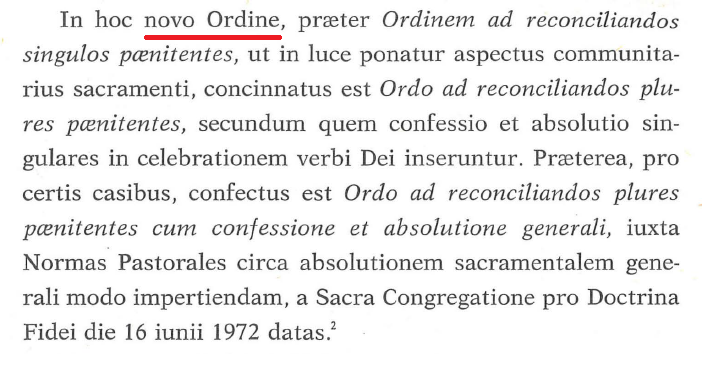
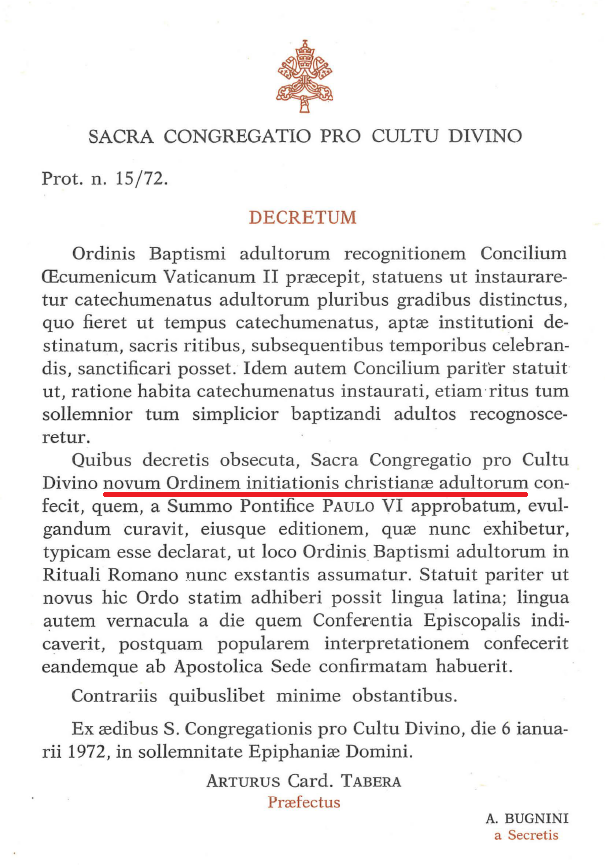
(8/8) Basically, "novus ordo" is not an automatic slur against the post-Vatican II Roman Rite, nor is it an improper term, nor was it only ever used "once".
So, if you want to use the term "novus ordo", go right ahead - and don't let anyone tell you otherwise!
So, if you want to use the term "novus ordo", go right ahead - and don't let anyone tell you otherwise!
• • •
Missing some Tweet in this thread? You can try to
force a refresh




